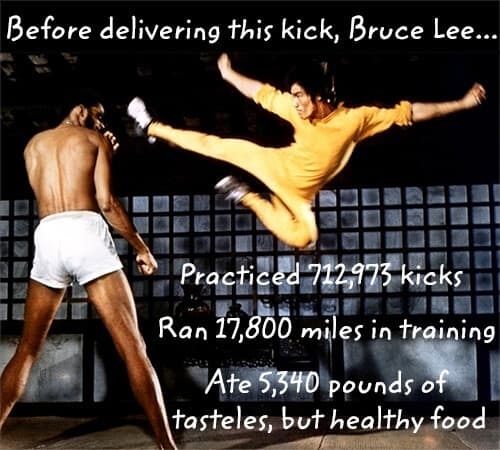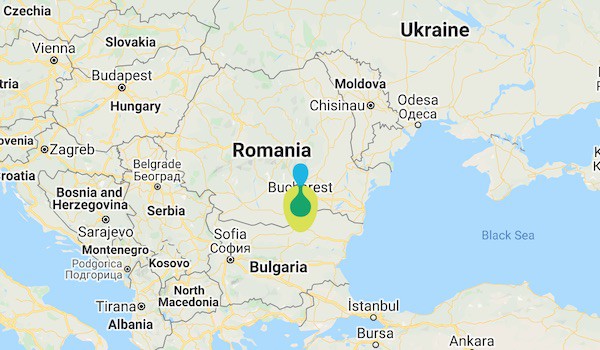About the gluten-free diet, many people know that it is healthier than diets containing gluten.
- They know that gluten can cause allergie or intolerance.
- They know gluten makes them gain weight.
- They know that.
- They know that..
- They know that…
From whom do they know all that?
From people with gluten sensitivities, of course.
And the direct feedback of a person with gluten sensitivity feels extremely valuable for someone who wish to know about gluten side effects. Just that it varies widely from one person to other persons asked for this feedback (1).
And yes, we all would expect this feedback to be:
- negative from patients with celiac disease;
- and somehow improved from people following a gluten-free diet because
they thinkthey have gluten intolerance (2).
The fact that someone has the discipline to respect a gluten-free diet is exceptional, just not necessarily healthy (3,4).
On the other hand, people know for sure that running is necessarily healthy.
- They know that it improves cardio-vascular health because it’s said that you won’t have a stroke if you run a marathon (5,6,7).
- They know that it helps with weight loss (8).
- They know that it improves blood lipids profile by increasing HDL-cholesterol level (9).
- They know that it ameliorates depression (10).
- And they suppose that it improves runners immunity (11).
From whom do they know all that?
From runners, of course.
And the direct feedback of a runner feels extremely valuable for someone who wish to know about running side effects. Just that it varies widely from one person to other persons asked for this feedback (12).
And yes, we all would expect this feedback to be:
- positive from short and medium distance runners (after learning to breathe properly). Because if we’d ask, some people would not run even to catch a bus that comes every hour. The next one will come.
- and somehow less positive from runners just ending a marathon or an ultramarathon when – although mentally everything is extraordinary – physically things can be less extraordinary (13).
The fact that someone has the discipline, mental, respiratory and muscular capacity to run a marathon or an ultramarathon is exceptional, just not necessarily healthy.
Without the proper nutrition, long and unltra-long distance running can be unhealthy at least in terms of gastrointestinal, cardiovascular and osteo-articular heath (but I will write two separate articles about the last two).
And yes, anyone can decide for himself that my opinion is pointless and keep running for as long as he can without talking with a gastroenterologist or with a sports nutritionist despite digestive symptoms felt during running.
Just that my opinion is not grounded on personal experience. I run with a 6-7′ per km a maximum of 10-15 km per week, and I feel fine. Also, I know many people that run more than that, and that run marathons and ultra-marathons, and they feel fine. My opinion is not grounded on their running experience either.
My opinion is grounded on studies on runners who experienced symptoms from digestive discomfort to digestive hemorrhage durring long distance running events (14). Because if a behavior/ medication/ supplement is beneficiary for 70 people – this may seem as pretty conclusive for people leaving with a health problem, thus many would extrapolate that behavior/ medication/ supplement as a solution for their own problem.
But what if they are 70 out of a 1,000 people, and that same behavior/ medication/ supplement had no effect or was harmfull for the last 930? If you’d have no problem maybe you’d mostly consider the theoretical implications.
But if you do have digestive symptoms while running, let’s see what studies are saying.
Many long distance runners present digestive symptoms like:
- gastroesophageal reflux (15)
- vomiting, diarrhea, abdominal cramping (16)
- and even digestive bleeding (17).
Thus, because of the fact that gastrointestinal discomfort felt by these runners mimics gluten intolerance symtoms, it has emerged the assumption that a gluten-free diet is beneficial for runners (18).
But a gluten-free diet for an endurance sport seems diametrically opposite of the pasta party concept, right?
Thus, besides the supposed gluten sensitivity, what might other digestive symptoms’ causes be in people that actually experience them only when running?
Long distance running can generate:
- sympathetic nervous system hyperactivity – which inhibits intestinal mucosal cells’ ability to secrete enzymes, causing an inability to digest dissacharides – further transported to the colon where they are fermented by local bacteria (19);
- intestinal dehydration – which increases intestinal absorbability for partially undigested nutrients – causing allergic like reactions like bloating, abdominal cramping, blood in faeces during the sport event – but in runners who have no problem what so ever eating gluten rich foods when they don’t run (20,21);
- intestinal vasoconstriction – which decreases liquids intestinal absorbability during running – especially for water either without/ with a carbohydrates and electrolytes content inappropriate for that athlete – which can cause diarrhea (22).
So, is the gluten-free diet beneficial for long-distance runners?
Yes if the runner has celiac disease or gluten intolerance also when he/ she does not run.
And no if the digestiv discomfort happens only when running because the above mentioned causes does not magically dissapear if we take out gluten for the runner’s diet.
Because they are caused by the sympathetic nervous system (responsable for fight or flight reactions) and by dehydration (if the runner does not properly hydrate according with his own health and training status during that particular run) – during long distance running digestive symptoms will keep happening even on a gluten-free diet (23).
As a general rule – without proper sports nutrition – the higher the effort, the higher both the intestinal ischemia and the intestinal permeability, thus the higher the digestive symptoms. And, sadly, this type of simptomps don’t occur only in runners, but also in cyclists, swimmers, triathletes and other athletes involved in endurance sports.
So what can they do to avoid digestive symptoms during sports events?
A. Before the sports event:
- 1 month before: hydration traing – done repeatedly before the event with the exact same sports drink that will be used during the sports event;
- 1 week before: eating high quality foods, as natural and as simplest cooked possible: proteins, carbohydrates, fibres and flavonoids supplying foods ± high quality omega-3 fats at every meal (high quality proteins and carbohydrates are mutually reinforcing);
- 1 1/2 – 2 hours before: take the meal before the event, and then just focus on hydration (proper hydration before the sports event is essential for effective hydration during the event);
- avoid evitarea antiinflammatory medication just before the event (24).
B. During the sports event:
- The most important thing not to do during a sports event is to start something new: untested sports drink, new running shoes, miracle supplements. Just keep business as usual and you’ll have a better chance for success;
- Hydrate regularly with low quantity of sports drinks appropriate for your body, running style and performance – again: use those you trained with repeatedly before the event;
- Avoid solid foods – which need more time for gastric emptying – and replace them with gels and semi-liquid foods containing electrolytes, amino acids and dextrose (25);
- Drink water with your gels, and alternate gels with sports drinks to restore blood volume decreased through dehydration (maintaining blood volume protects your heart and maintains your performance during sports events)
- Avoid caffeine and anti-inflammatory medication if you experienced digestive symptoms in other sports events;
- However, if digestive symptoms still occur, decrease intensity until they diminish or remediate.
Of course this plan might not suit gastro-intestinal pathology, thus realy pay attention to your gut while running. If you feel ill – better stop and see a medical doctor.
And yes – it is far easier to eliminate complete categories of foods than to follow the above plan, but it surely is easier than to counteract the impact of a gluten-free diet on endurance sports performance.
If you are a runner with digestive discomfort while running, please read the following references.
(1) Capannolo, A., et al. “Non-Celiac Gluten Sensitivity among Patients Perceiving Gluten-Related Symptoms.” Digestion 92.1 (2015): 8-13.
(2) Newman, Kaylee. “Excluding Gluten in a Healthy Collegiate Runner.” Journal of Sports Medicine and Allied Health Sciences: Official Journal of the Ohio Athletic Trainers Association 1.1 (2015): 19.
(3) De Palma, Giada, et al. “Effects of a gluten-free diet on gut microbiota and immune function in healthy adult human subjects.” British journal of nutrition102.08 (2009): 1154-1160.
(4) Mariani, Paolo, et al. “The gluten-free diet: a nutritional risk factor for adolescents with celiac disease?.” Journal of pediatric gastroenterology and nutrition 27.5 (1998): 519-523.
(5) Noakes, TIMOTHY D. “Heart disease in marathon runners: a review.” Medicine and science in sports and exercise19.3 (1987): 187-194.
(6)La Gerche, André, et al. “Exercise-induced right ventricular dysfunction and structural remodelling in endurance athletes.” European heart journal (2011): ehr397.
(7) Herrmann, Markus, et al. “Post-race kinetics of cardiac troponin T and I and N-terminal pro-brain natriuretic peptide in marathon runners.” Clinical chemistry49.5 (2003): 831-834.
(8) Tremblay, Angelo, Jean-Pierre Després, and Claude Bouchard. “Adipose tissue characteristics of ex-obese long-distance runners.” International journal of obesity 8.6 (1983): 641-648.
(9) Olchawa, Beata, et al. “Physical fitness and reverse cholesterol transport.”Arteriosclerosis, thrombosis, and vascular biology 24.6 (2004): 1087-1091.
(10) Leedy, M. Gail. “Commitment to distance running: Coping mechanism or addiction?.” Journal of Sport Behavior23.3 (2000): 255.
(11) Nieman, David C. “Marathon training and immune function.” Sports Medicine37.4-5 (2007): 412-415.
(12) Neilan, Tomas G., et al. “Myocardial injury and ventricular dysfunction related to training levels among nonelite participants in the Boston marathon.” Circulation114.22 (2006): 2325-2333.
(13) Mann, Nirmal S., and Sital Singh. “Runners’ Diarrhea: Systematic Evaluation of 1184 Cases with Meta-Analysis.” International Medical Journal 22.1 (2015).
(14) 94 de studii despre efectele gastrointestinale ale alergatului: http://www.uptodate.com/contents/gastrointestinal-disorders-in-athletes
(15) Parmelee-Peters, Katrina, and James L. Moeller. “Gastroesophageal reflux in athletes.” Current sports medicine reports 3.2 (2004): 107-111.
(16) Mann, Nirmal S., and Sital Singh. “Runners’ Diarrhea: Systematic Evaluation of 1184 Cases with Meta-Analysis.” International Medical Journal 22.1 (2015).
(17) McCabe III, Marshall E., et al. “Gastrointestinal blood loss associated with running a marathon.” Digestive diseases and sciences 31.11 (1986): 1229-1232.
(18) Lis, Dana, et al. “No Effects of a Short-Term Gluten-free Diet on Performance in Nonceliac Athletes.”
(19) Ter Steege, R. W. F., and J. J. Kolkman. “Review article: the pathophysiology and management of gastrointestinal symptoms during physical exercise, and the role of splanchnic blood flow.” Alimentary pharmacology & therapeutics35.5 (2012): 516-528.
(20) Øktedalen, O., et al. “Changes in the gastrointestinal mucosa after long-distance running.” Scandinavian journal of gastroenterology 27.4 (1992): 270-274.
(21) Parmelee-Peters, Katrina, and James L. Moeller. “Gastroesophageal reflux in athletes.” Current sports medicine reports 3.2 (2004): 107-111.
(22) ten Haaf, Dominique SM, et al. “Nutritional indicators for gastrointestinal symptoms in female runners: the ‘Marikenloop study’.” BMJ open 4.8 (2014): e005780.
(23) Lis, D. M. “Gluten-Free Diet May Not Boost Athletic Performance: A new study shows no difference in performance or reduction of GI symptoms when cyclists cut out gluten.” (2015).
(24) Küster, Michael, et al. “Consumption of analgesics before a marathon and the incidence of cardiovascular, gastrointestinal and renal problems: a cohort study.” BMJ open 3.4 (2013): e002090.
(25) Murray, Robert. “The effects of consuming carbohydrate-electrolyte beverages on gastric emptying and fluid absorption during and following exercise.” Sports Medicine 4.5 (1987): 322-351.





